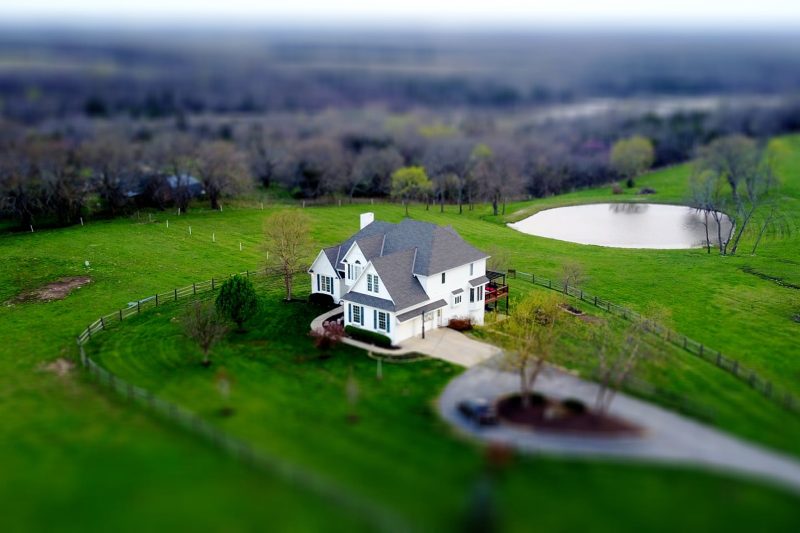USDA Eligibility Guide
“Find out if you’re eligible for a USDA home loan with Smart Mortgage!”
Auburn, IN USDA Loan Eligibility Guide
-
- The home must be located in a USDA-eligible rural or suburban area around Auburn, IN. The USDA provides an online tool to help potential borrowers determine if a specific property is in an eligible area.
- The property must be used as the borrower’s primary residence.
- The home must meet all local codes and program regulations.
2. Applicant/Household Eligibility:
-
- U.S. citizenship or permanent residency is required.
- The borrower must be unable to obtain a loan from other resources on terms and conditions that can reasonably be expected to meet.
- The applicant must have a stable and dependable income, typically verified by two years of consistent employment. The income must also be sufficient to cover the mortgage payment, including taxes and insurance.
- The household’s adjusted income must be at or below the applicable low-to-moderate income limit for the area.
- A reasonable credit history. While a specific credit score is not mandated, a credit score of 640 or higher is typically required for streamlined processing. However, those with lower scores may still be eligible but may undergo a more stringent evaluation.
Questions Call (888)416-4805
Get cash from your home.
Apply to see how a cash out refinance can help you.
Homebuyer Seminars
Discover the keys to homeownership at our local Auburn, IN home buying seminars – your first step towards securing your dream home!
See our home loans.
Explore our diverse range of home loan programs tailored to fit your unique needs!
3. Income Limits:
- Income limits vary by county and household size. You’ll need to check with our Auburn, IN USDA service center or the USDA’s online tools to see specific limits.
4. Loan and Debt Ratios:
- Typically, a 29/41 ratio is followed. This means that 29% or less of your monthly income can go towards your mortgage (Principal, Interest, Taxes, and Insurance) and 41% or less of your monthly income can go towards your total debt (this includes the mortgage and other debt obligations). Exceptions can be made in certain circumstances.
5. Other Requirements:
- Borrowers must personally occupy the dwelling as their primary residence.
- The borrower must be legally able to take on the loan obligation.
- First-time homebuyers are required to take a homeowner counseling class in some situations.
6. Loan Terms:
- The loan term is typically 30 years.
- No down payment is usually required.
- The interest rate can be set by the lender but is subject to USDA review.
7. Guarantee Fee and Annual Fee:
-
- The USDA charges an upfront guarantee fee, which can be rolled into the loan amount.
- There’s also an annual fee, which is a percentage of the remaining principal amount, typically spread out in monthly installments.
It’s crucial to remember that while these are the general requirements for Auburn USDA mortgages, eligibility details can change. It’s always a good idea to consult with one of our Auburn, IN USDA home loan professionals. Get pre-approved with our easy and stress free Auburn, IN USDA home mortgage today.
Do you need a Pre-Approval?
Get a same day Auburn, Indiana USDA pre-approval to shop for your dream home!
Mortgage Resource Center

USDA Home Loan VS FHA Home Loan
USDA Home Loans vs. FHA Home Loans: Which is Right for You? Homeownership is a dream for many people. To make it achievable for a wider range of Read more
We also provide USDA home loans in the following cities
More About Auburn, Indiana
Auburn is a city in DeKalb County, Indiana, United States. The population was 13,820 at the 2020 census. Founded in 1836 by Wesley Park (1811–1868), the city is the county seat of DeKalb County. Auburn is also known as Home of the Classics.
Auburn’s site on Cedar Creek was chosen by Wesley Park and John Badlam Howe at the intersection of two major trails, Goshen-Defiance Road and Coldwater Road, and next to the land of John Houlton. The name for the community likely came from “The Deserted Village” by Oliver Goldsmith, that begins “Sweet Auburn! Loveliest village of the plain.” The plat of the Village of Auburn is dated April 21, 1836, but it was held by Howe and not recorded until March 12, 1879. John Drury purchased the first lot (Lot 73) for $25.00 on September 5, 1837. The first store was built at Park’s corners by Thomas Freeman, applying for a license on March 5, 1838, and bringing supplies by horseback from Fort Wayne. Daniel Altenburg, Levi Walsworth, the Sherlock family, Samuel Sprott, David Weave, David Shoemaker, Henry Curtis, Lyman Childsey, James Cosper, and David Cosper were among the early residents.
A post office was established in 1839. In 1841, malaria ran through the town, and in 1843 a terrible storm wreaked havoc on cabins and crops. The Church of God was built by the Presbyterians in 1846. The Village of Auburn was incorporated in 1849, divided into wards, and governed under a town board and constable. By the end of the American Civil War, the town included over 700 inhabitants. The storm of September 29, 1872, destroyed Odd Fellow’s Hall and damaged the Methodist Episcopal church. A few months later, on April 6, 1873, the new brick block of Seventh Street (Snyder’s Building) collapsed, also destroying the Ensley Building. Auburn Water and Lights was constructed in 1898. The change in status to the City of Auburn on March 26, 1900, followed a referendum. Notable citizen Charles Eckhart erected a public library and a YMCA building.
The Auburn Automobile Company, which was founded in 1900, produced its first automobile in 1903. William Wrigley, Jr. and Errett Lobban Cord controlled interests in the company, which eventually acquired Duesenberg, Lexington, and Lycoming Engines, and started Cord Car Company. The company failed in August 1937. Other makes of cars built in Auburn include Black, De Soto (Not De Soto by Chrysler), IMP, Kiblinger, McIntyre and Zimmerman.
The Auburn Rubber Company was started in 1913 as the Double Fabric Tire Company, making tires for Auburn Automobile Company. In the 1920s, as Auburn Rubber, it became a large manufacturer of rubber toys, leaving Auburn in 1959. Auburn was home to early automobile company DeSoto in 1913. This company has no connection with the DeSoto that was manufactured by Chrysler.









